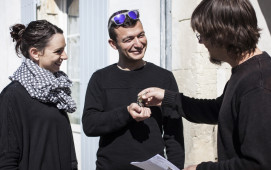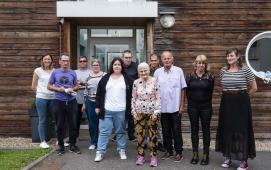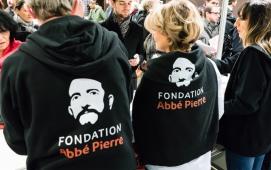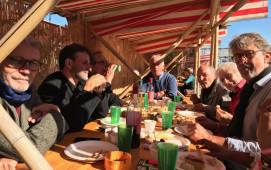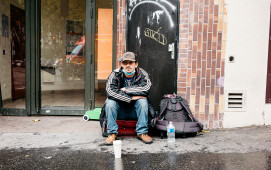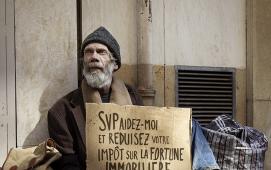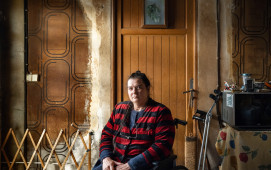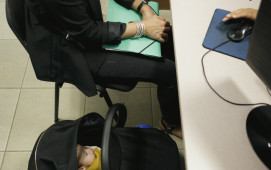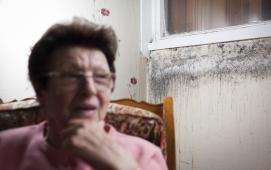Neuilly-Plaisance, first Emmaüs community
Easter 1949, Abbé Pierre has taken in Georges Legay a few months ago, this desperate man who wanted to commit suicide.
Using his wages from the Parliament, the Abbé renovates an old house in Neuilly-Plaisance, in the eastern suburb of Paris. The underprivileged, the homeless, the families all come knocking at the door of this house.
The Abbé and his secretary, Lucie Coutaz, receive people all the time, without rest.
The house rapidly becomes a meeting place where people can stay as long as needed, each according to their needs. “Mother Coutaz” is there, with her typewriter, and the “little fellow with his cassock”, the Abbé’s nickname during that time, manages the daily arrivals:
“You were master corporal in the Legion? You know how to command? Perfect, I need you.”
And that’s how Norbert, total stranger 10 minutes before, was hired as foreman on the construction site of the first emergency estate. “The Abbé Pierre was like that, he needed someone, he easily trusted people. And every evening, in front of the house, each one of us received money, wages for the day’s labour”, reminisces Jean-Pierre, one of the oldest companions of Neuilly-Plaisance.
Sometimes there were more than 50 persons received on site, some slept in a wooden shed adjoining the house. The first Building Companions community is born (Compagnons Bâtisseurs).
“I took a plank and wrote Emmaüs on it: here, we enter in enthusiasm.”
Give back courage and enthusiasm to those broken by the trials of life: help other and help one’s self.
In 1951, the Abbé leaves the Parliament, funds run out quickly. A companion from the outset, Auguste Legall suggests searching the dumpsters, begging being out of the question. Rapidly, rag-and-bone men search housing disposals in order to gather and sell raw material and second hand objects. Following the Neuilly-Plaisance shop, one in Bougival is created a few weeks later.
Little by little, the Emmaüs Ragmen Builders’ Communities (Chiffonniers Bâtisseurs) develop over a one of a kind principle: “give me your help to help others”.

